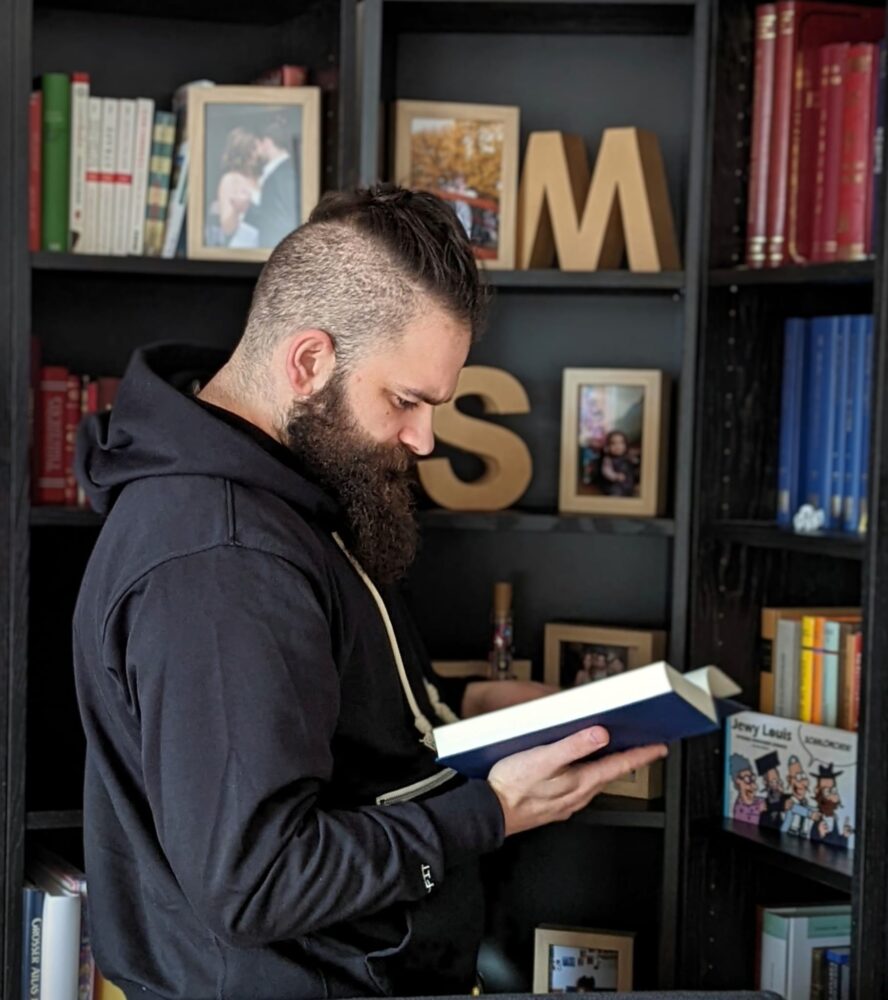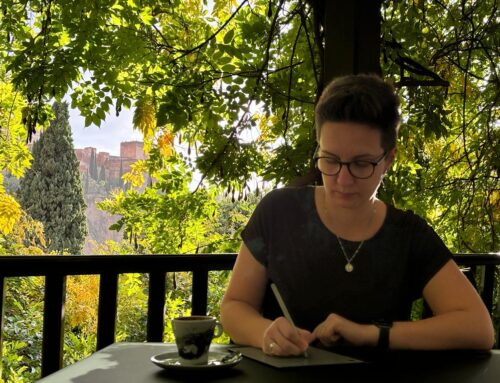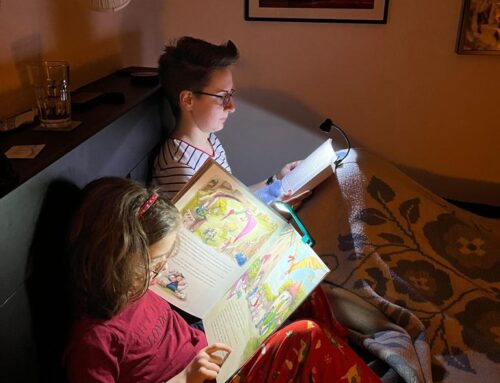S-Dad: I will break the crystal spine, or is studying really a guaranteed path to happiness and a fulfilling and meaningful life?
The fairly long pause I’ve taken regarding S-Mama Blog is conditioned by several things. Long creative block and my wife’s uncompromising editorial policy of the blog resulted in numerous attempts that ended up in the trash can on my computer 😊
There are no secrets, no deception.
At our university, February is reserved for exams.
Being on the other side of the table in the role of the examiner wasn’t initially easy, primarily because I had heightened empathy towards students due to identifying with their “struggle” or their fears and doubts about themselves and their knowledge.
However, as time passed and brought experience and routine, I found myself enjoying the job more and more.
Actually, for the first time, exams began to appeal to me. I was filled with delight when I had someone in front of me who had genuinely mastered the material and was able to creatively apply that knowledge.
What are exams like in Germany from the examiner’s perspective?
The organization and conduct of student examinations here in Germany differ greatly from those in the Balkans. Perhaps the biggest difference lies in the transparency of the whole process.
Here, the date of your oral (or written) exam is scheduled several weeks in advance, and the oral examination lasts 15 or 20 minutes, depending on your study program. So, 15 or 20 minutes, no longer and no shorter.
If it lasts a few seconds longer, it’s to help the student achieve a better grade, never a worse one.
Of course, after the 10th or 15th student in a single day, concentration drops, professors forget how the exam progressed at a certain moment, whether every answer was precise enough…
That’s where the assistant comes in, whose main task is to keep a written record of the exam. he protocol serves not only to remind the examiner of the course of the exam but also to assess the student’s knowledge as objectively as possible.
A list of criteria is used to evaluate the answers during the exam. Again, all this is for the sake of objectivity and to reduce external factors such as the examiner’s mood or fatigue.
In the end, the grade is determined in agreement between the professor and the assistant, and during that part of the process, the student is not present in the room. When the grade is defined, the student receives detailed feedback and an explanation of the grade.
n this way, the grade is as objective as possible and, above all, transparent, and based on the feedback, the student can improve their “performance” in the next exams. A win-win for both sides.
Which way are you going, student?
As I already mentioned at the beginning, in the first exam sessions, I was more empathetic towards people who were nervous, but still, criteria are criteria.
And you know, when someone has studied well, small mistakes are easily forgiven.
The problem is, what about those people who haven’t come prepared?
What about people with minimal knowledge, which is on the border between a passing grade and a fail?
What to do with people who always show up at every exam like parachutists, just wanting to scrape through and somehow grab a diploma, which should secure them a job in the public sector and a good salary tomorrow?
I know, it’s the same in every country.
Everyone wants to work less, earn more, invest minimal effort. That seems to be human nature.
In the case of my students, we’re specifically talking about people who are supposed to be teachers tomorrow.
And then inevitably, one comes to the question: do I really want my child to have such a teacher?
And what about that group of students?
Should we bend over backward and produce a workforce that absolutely won’t be qualified, or raise the criteria to the sky and have high failure rates in exams?
Where do people who can’t grasp even simple scientific terminology fit into all of this?
And you watch them trembling, frightened, just wanting to get through it, just to pass one more step.
And you wonder if all of this is worth anything?
A crystal spine?
In Serbia, parents have hammered our heads with that famous phrase, “study hard so you don’t break your spine”; “the more school, the less strain on your back”; “either school or dig canals, so you decide for yourself.”
I know, they wanted the best for us, that’s undisputed.
But is that really what’s best for us?
Will you save your spine, i.e., your health if you struggle, study, stretch, stress, tremble at every exam?
Is it best to engage in something you barely finish and don’t even like?
And what meaningful does that bring?
It seems to me that we don’t equate mental and physical exertion, but we should!
The question of all questions that I’ve been circling around all this time is: is school and education really a guaranteed path to happiness and a fulfilling and meaningful life?
I want to emphasize the state of satisfaction and personal sense of fulfillment here! hat’s what we strive for, and that’s what should be imperative for us. Because who wants an unfulfilled and meaningless life?
Honestly, I believe education is a path to happiness. t is crucial for our self-realization and fulfillment and for leading a meaningful and good life.
However, I would still make a distinction between formal and informal education.
Informal education, in my opinion, is necessary for most people to achieve that essential balance in life, and it can be achieved in many ways: reading, watching, listening, and acting – basically learning outside the classroom.
This type of education primarily contributes to getting to know ourselves better, our needs, desires, and aspirations. f we don’t know who we are, then it’s hard for us to know what we need or don’t need to be fulfilled.
Formal education can be a path to satisfaction, but not necessarily.
Studying gives you a bunch of tools for easier navigation in life, but it’s essentially not the end but the beginning of the educational process, which never ends.
At the end of your studies, you should realize how much you don’t know (Socrates and his inevitable: I know that I know nothing) and be highly motivated to keep learning, aware that you will never learn everything.
And finding happiness in learning during and after your studies might be one of the primary goals of the studies themselves.
If you don’t have that passion primarily for reading, and then for learning, I think it’s better to choose another path, because it would be the same as wanting to be a surgeon but fainting at the sight of blood.
And if you don’t like to learn, then you can find happiness in any other type of profession… Whatever works for you!
Studying at all costs is absolutely not necessary. And studying isn’t for everyone!
It’s better to be an excellent craftsman (or anything else that fulfills you) than a bad student and later an unsatisfied “professional in the field”!
S-Dad






Leave A Comment